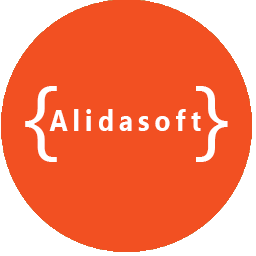DevOps Engineering on AWS
A Comprehensive Guide for Cloud Enthusiasts
Introduction
In the dynamic landscape of cloud computing, DevOps engineering plays a pivotal role in achieving a seamless and efficient software development lifecycle. This guide is tailored for prospective AWS cloud computing students, offering an in-depth exploration of DevOps principles, best practices, and their practical implementation within the AWS ecosystem.
Understanding DevOps Principles
Bridging the Development and Operations Gap
DevOps is more than just a set of practices; it’s a culture that aims to:
- Collaboration: Foster communication and collaboration between development and operations teams.
- Automation: Streamline processes through automation for efficiency and reliability.
Automation with AWS CodePipeline
Orchestrating Your Release Process
AWS CodePipeline is a fully managed continuous delivery service that automates your release pipelines:
- Source, Build, Deploy: Streamline your code from source to production.
- Integration with AWS Services: Seamlessly integrate with other AWS tools for a unified workflow.
Infrastructure as Code (IaC) with AWS CloudFormation
Treating Infrastructure Like Software
AWS CloudFormation enables you to define and provision AWS infrastructure as code:
- Declarative Language: Describe the desired state of your infrastructure.
- Resource Provisioning: Automate the creation and modification of resources.
Continuous Integration with AWS CodeBuild
Building and Testing Code Effortlessly
AWS CodeBuild is a fully managed build service that compiles source code, runs tests, and produces artifacts:
- Scalable Compute: Pay only for the compute resources you consume.
- Integration with Other AWS Services: Directly integrate with AWS services for an end-to-end pipeline.
Monitoring and Logging with Amazon CloudWatch
Gaining Insights into Your Applications
Amazon CloudWatch provides a comprehensive monitoring and logging solution:
- Metrics and Alarms: Monitor performance and set alarms for actionable insights.
- Log Analytics: Analyze logs for troubleshooting and performance optimization.
Collaboration and Communication with AWS Chatbot
Streamlining Team Communication
AWS Chatbot facilitates communication and collaboration within your development and operations teams:
- Integration with Slack and Chime: Receive alerts and execute commands directly from your collaboration tools.
- Event Notifications: Stay informed about changes and events in your AWS environment.
Ensuring Security in DevOps Practices
Integrating Security Throughout the Pipeline
DevOps and security go hand in hand. Secure your DevOps processes by:
- Identity and Access Management (IAM): Manage access and permissions securely.
- Code and Artifact Scanning: Implement automated security checks in your pipeline.
Conclusion
Mastering DevOps engineering on AWS is not just about adopting tools; it’s about embracing a cultural shift towards collaboration, automation, and continuous improvement. From automating your release pipelines with AWS CodePipeline to treating your infrastructure as code with AWS CloudFormation, this guide has covered key aspects for aspiring DevOps engineers.
Summary
- DevOps Culture: Fostering collaboration and automation for a seamless development lifecycle.
- AWS CodePipeline: Orchestrating your release process with automated workflows.
- AWS CloudFormation: Treating infrastructure as code for consistency and scalability.
- AWS CodeBuild: Continuous integration for building and testing code effortlessly.
- Amazon CloudWatch: Monitoring and logging for gaining insights into your applications.
- AWS Chatbot: Facilitating collaboration and communication within your teams.
- Security Best Practices: Integrating security throughout your DevOps practices.

